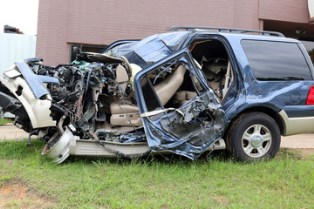When a loved one dies in a vehicle accident, hiring an attorney or pursuing a wrongful death lawsuit may not be the first thing that comes to mind. However, as funeral and medical bills begin to pile up, you may realize the difficulty in meeting your financial obligations without the support of the deceased, and you may also find it difficult to move forward with your life without the emotional support of that person, as well. Consequently, a wrongful death claim may be possible to help provide some financial and emotional support if it can be proven that there was negligence on the part of the at-fault driver. 
Wrongful Death Claims
A wrongful death is one that is caused by the wrongful act, neglect, or fault of another party. Essentially, a wrongful death claim is a personal injury claim in which the injured party is no longer capable of bringing his own case to court. Instead, one or more of his “statutory beneficiaries” must file the wrongful death claim.
Compensation in Wrongful Death Claims
Compensation in wrongful death claims may be available for:
- Expected loss of income of the decedent, as well as services, protection, care, and assistance provided by the decedent
- The care, treatment, and hospitalization of the decedent, due to the injury that ultimately resulted in his death
- Sorrow and mental anguish experienced by the survivors, as well as the loss of companionship, comfort, guidance, and advice provided by the decedent
- Reasonable funeral costs
- Punitive damages for willful or wanton conduct, or recklessness that demonstrated a conscious disregard for the safety of others
Filing a Wrongful Death Claim
A wrongful death claim must be filed by one or more “statutory beneficiaries.” These are family members or dependents of the deceased, including:
- The surviving spouse, children, or grandchildren
- The surviving parents and siblings, or any relative who shares the deceased’s household and is a dependent of the deceased
- Any surviving family member who stands to inherit the deceased’s estate under Virginia’s intestacy laws
Under Virginia’s wrongful death law, the right to file a claim follows a specific order. Surviving spouses, children, and grandchildren have the initial right to file the claim. Then, surviving parents, siblings, and dependents may file. If there are no such survivors, the right to file belongs to anyone who stands to inherit the deceased’s estate under Virginia’s estate law.
Proving a Wrongful Death Claim
There are three basic components to proving a wrongful death claim:
- You must demonstrate that some person or entity was at fault. For example, if the fatal crash occurred due to an intoxicated driver, you may be able to prove that the bar owner who last served the driver violated the state’s dram shop laws prohibiting the serving of alcohol to someone who is already intoxicated.
- You must prove your relationship to the deceased. If the decedent was your spouse, you need to produce a marriage license. Children must provide birth certificates. If you’re a beneficiary named in the deceased’s will, you need a copy of the will.
- You need to demonstrate that the death of your loved one will result in a monetary loss. If the decedent was employed at the time of his death and was the parent of one or more children, you need proof of the income he would have produced during his lifetime.
You Need an Attorney
If you’re pursuing a wrongful death claim, you need professional representation. We retain experts to perform accident reconstruction when needed, to determine the cause of the accident, and identify liable parties. Our law firm has a working relationship with a former police department reconstruction expert who has the expertise necessary to handle these sensitive vehicle accident cases. Contact the vehicle accident attorneys of Kearney, Freeman, Fogarty & Joshi, PLLC by using the form on this page.
|
Related links: |

